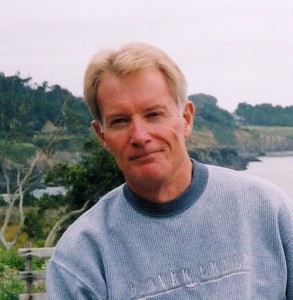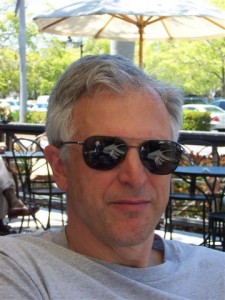 The hot water nearly singed her skin as she submerged, completely naked. She protected her breasts from burning with her hands, slowly removing them after the water was over her chest. Yet it was soothing, and as the water came up to her chin she could feel herself melting and becoming one with it. The heat seeped into her body’s sculpted musculature. The sky, still clear, served as a deep black canvas for constellations, stars, planets and the haze of the Milky Way. One star, just above the tree line, glittered in red and blue hues. Kathrin rolled her head all the way around, then touched her chin to her chest. She let her head fall back on the cushion. With both the underwater light and the jets off, she let the sights and sounds of the night surround her. The babbling of the brook just below the house echoed off the trees, magnifying its steady rush into that of a stronger river. A night bird called out. An owl answered. Steam rose up from the tub. Continue reading “Getting It Right: Hot Tubbing”
The hot water nearly singed her skin as she submerged, completely naked. She protected her breasts from burning with her hands, slowly removing them after the water was over her chest. Yet it was soothing, and as the water came up to her chin she could feel herself melting and becoming one with it. The heat seeped into her body’s sculpted musculature. The sky, still clear, served as a deep black canvas for constellations, stars, planets and the haze of the Milky Way. One star, just above the tree line, glittered in red and blue hues. Kathrin rolled her head all the way around, then touched her chin to her chest. She let her head fall back on the cushion. With both the underwater light and the jets off, she let the sights and sounds of the night surround her. The babbling of the brook just below the house echoed off the trees, magnifying its steady rush into that of a stronger river. A night bird called out. An owl answered. Steam rose up from the tub. Continue reading “Getting It Right: Hot Tubbing”
Tag: author research
How “Real” Should A Novel Be? by John Wayne Falbey

Back in April, author James Bruno suggested in these pages what he believes are the two essential ingredients for a successful novel. One of these is knowledge of the subject matter. His point is that successful works of fiction utilize characters and story lines that closely resemble reality; in other words, they achieve verisimilitude.
The other critical ingredient lies in crafting a good story. Attorneys have a label for something this obvious: sine qua non; which means the thing speaks for itself. Readers of fiction invariably are in search of a good story. They want to be entertained by the written word. Shallow characters, inadequate descriptive passages, choppy or overly verbose dialog, and weak plots won’t attract large numbers of readers or build a fan base.
With regard to the first point, unless the novel falls into the genres of fantasy, horror, or science fiction, the writer has to create a scenario that could be real. Verisimilitude is achieved when the reader suspends disbelief. This means the writer has to fully understand the subject matter about which he or she is writing. There are a limited number of ways to accomplish this. Continue reading “How “Real” Should A Novel Be? by John Wayne Falbey”
Don’t Try This at Home
 That’s right – don’t try this at home. I’m a professional…professional lunatic, perhaps. Although my good friend and martial artist Dennis Lawson once told me that because I’m a published novelist, that makes me eccentric. Otherwise I’d be certifiable.
That’s right – don’t try this at home. I’m a professional…professional lunatic, perhaps. Although my good friend and martial artist Dennis Lawson once told me that because I’m a published novelist, that makes me eccentric. Otherwise I’d be certifiable.
It started in New York City while I was working on my first novel, Lust for Danger, with a screenplay writer (Mykel). She’d read the draft my agent gave her and loved it. We were in her office, and she got to a scene in which Special Agent Night was nearly discovered snooping for evidence during an illegal search. There was only one place for my agent to go – under the suspect’s desk. Mykel said she wanted more depth – more suspense – in that scene. I was stumped.
“Have you ever tried hiding under a desk?” Mykel asked me.
In fact, I hadn’t (that I could remember). What could it hurt? I figured out how much time it would take for the suspect to do what he had to do in the office, set a timer, and crawled under the desk. Wow. It’s amazing how perspective changes…how suddenly the space closes in around you. Mykel was quite pleased with my re-written scene.
You realize, of course, she created a monster. Continue reading “Don’t Try This at Home”
Writing the National Security Thriller: Verisimilitude by James Bruno

Two ingredients are essential for writing a successful novel: good writing and knowledge of the subject matter. Just as a murder mystery reads better when the detective work and forensics reflect true life, so is it with national security thrillers. These include spy, political and military thrillers.
Verisimilitude: Separating the Plausible from the B.S.
What separates the outstanding national security thrillers from the rest of the pack is verisimilitude: creating characters, situations and plots that closely resemble the real thing. The worst thrillers are the ones where the author simply fabricates how a spy/political actor/soldier operates. That is not to say that the latter don’t become bestsellers. They often do. The authors of thrillers lacking in verisimilitude succeed by spinning a good yarn for which readers are willing to suspend big-time disbelief. Ian Fleming’s James Bond is a case in point. Wonderful entertainment. Totally divorced from the real world. Continue reading “Writing the National Security Thriller: Verisimilitude by James Bruno”
